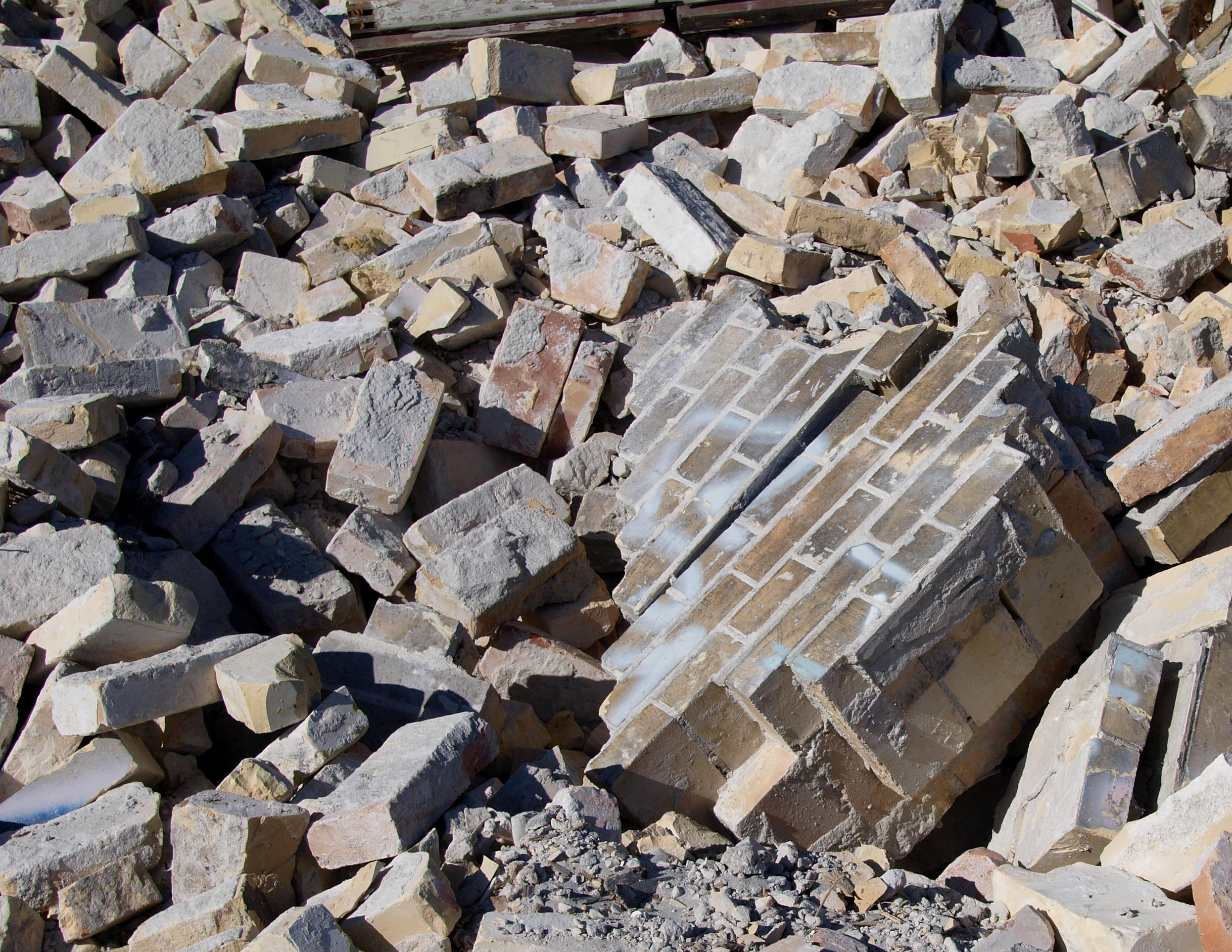Sitting in the Rubble after a Major Loss
Some life transitions begin with a "bomb". These are the experiences that can usually be traced to an exact moment. The car accident that caused a head injury. The phone call announcing a death. The moment when your spouse announces out of the blue that she never loved you. The discovery of a deeply hidden family secret. A diagnosis of an incurable disease.
The bomb explodes on the scene and your life becomes forever marked by that moment -- where you were standing, what she was wearing, the look on the doctor’s face. From that time forward you are thrust into a season of intense upheaval in multiple arenas in your life: your relationships, your every day life, your need for others, your sense of security, your understanding of God.
This first season of transition after a major loss will be a time of just sitting in the rubble. Here are some things you can expect as you walk through your first few years after a "bomb" has exploded in your life:
The road of your life as you pictured it before has now been blown apart. We all carry within us dreams, expectations, and plans that serve as a road leading into the future. We find stability and hope as we look to this road lying before us. Now that road has been demolished by the bomb. You have the double whammy of not only facing the obvious loss (i.e. your loved one, your health, your marriage), but the secondary losses of what you envisioned for your future.
Your whole being (body, emotions, mind, spirit) will respond to this loss. You have experienced an amputation in your world and being. Expect your equilibrium to be off. Small decisions may completely disorient you. Large decisions may paralyze you. Some of your responses may seem irrational because you are responding from the pain of a gaping wound. Reason may not be running the show at this juncture of crisis. You will have to listen to your body more; it will communicate things you cannot even verbalize. You are going to be all over the map emotionally - some days strong, other days unable to get out of bed.
This will be season of unpredictable emotions and reactions. Be gentle with yourself.
Set intentional times to grieve. One way to contain your grief is to set aside specific times to do the hard work of dealing with the loss. It’s not that grief won’t occur at other times, but it will help you manage your grief rather than your grief managing you. If you feel yourself on edge-- schedule a time to acknowledge your loss. Create a space to let the tears come, to look at photos, to revisit memories, to take stock of your losses, or to write a psalm of lament. The important thing is to confront you grief... running from it will prolong the healing process.
Schedule intentional times NOT to grieve. No one can live in perpetual grief. Take an evening where you don’t talk about the bomb and its fallout. One of my friends used to come over for coffee and say, “I’m so tired of talking about cancer - just tell me about your life.” You will need emotional and mental breaks from processing what has happened. Don’t worry, your loss and it’s impact is not going anywhere. It is not disloyal to leave others in the mess while you go to a movie, have coffee with a friend, or take a walk in nature. You need some pockets of relief, a change of scenery, and a break from watching other people in pain.
You are going to need a few safe people. You need one or two people with whom you can entrust your true thoughts. You need a place to be real, to vent, to rail against the injustice, to question, to express your doubts and anger. Not friends that try to wrap it all up in a neat package or tie it together with a Bible verse, but friends that just listen and cry with you. (If you are married, it probably won’t be your spouse especially if they are experiencing the loss with you.)
Some of your closest friends may not be able to be your safe place at this time. Whether it’s their inability to sit with suffering, their differing world view, their own truncated emotional health, some people just aren’t great in crisis. If they are teachable, tell them what you need. If they continue to suck life from you, just release that person for now as not being your main support. Look for others who might know how to walk better with you for this season.
Building a new road forward is going to take longer than you think. You are grieving a present loss and the losses of your future. You’re not going to be able to picture a new and rosy future for a while; all you will see is the loss of the road you had imagined. Don’t try to recreate a new road too quickly.
Grief has a way of forcing us to live in the painful present. Take it one day at a time, one hour at a time, sometimes one minute at a time. You will be gathering new pieces of information for a while to put together-- stone by stone to create a new path forward. Rebuilding takes a lot of energy that you don’t currently have. Be prepared to sit in the rubble without a fully formed road forward for quite a while.
Find someone from whom you can ‘borrow hope.’ We all have hope-givers in our lives. Not the Pollyanna type of people who skip the pain and go right for talk about redemption. There are the people who have faced the darkness head-on or who have experienced some bomb of their own and they KNOW there is life on the other side. They truly believe you can have a meaningful, beautiful, full life despite the travesty that has unfolded (even if you are now measuring your life by weeks instead of years). They don’t minimize the suffering or over-spiritualize it. Nor do they refuse to acknowledge good has come from the loss. They have rebuilt their own road forward stone by stone— laying the stones of suffering to fit alongside the stones of redemption that over time formed a new path forward. Borrow from their hope.
These are the moments in the rubble where spiritual pathways of trust in your relationship with God are built. Release the idea that these are warm, fuzzy, Kodak moments of faith. Trust in the rubble is raw and messy. It's screaming 'Why?!" in one moment and whispering, "Help me trust You" in the next. Trust is tying yourself to the mast of Truth to wait out the storm because if you didn't anchor somewhere, you'd go overboard. It's not pretty. But powerful things happen in those wobbly declarations of faith. Trust me.
This post is dedicated to dear friends - The Sider family, the Wilson family, and one of my BFF's from Capernwray, Tamara, who are still in the rubble phase of catastrophic loss and attempting to find a path forward. Holding hope with you.







